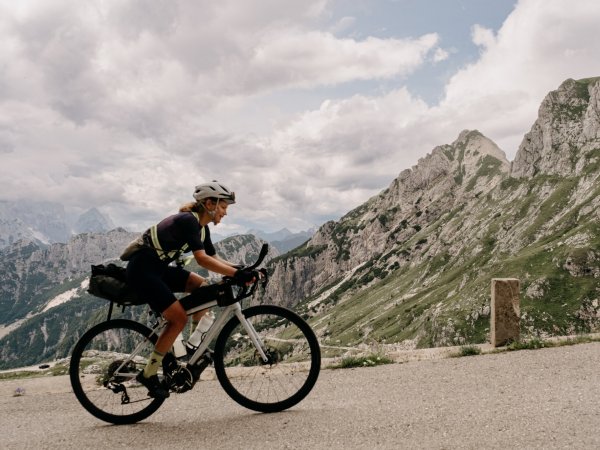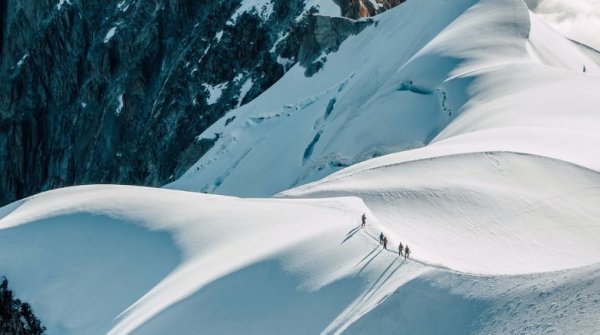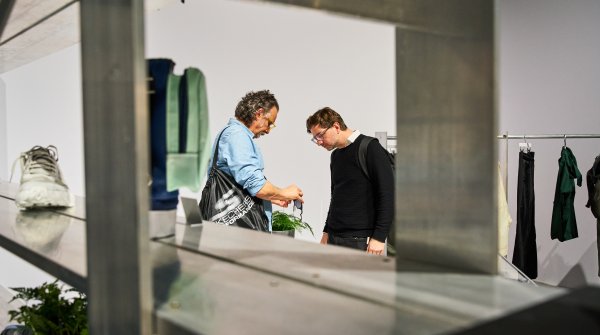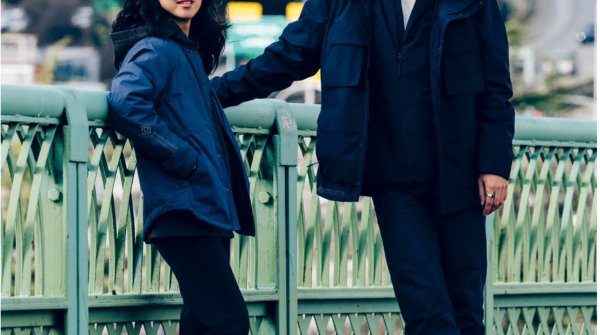- Ultracycling - the ultimate challenge
- “It's in my nature that I like to take things to the extreme.”
- Being alone and being able to torture yourself are part of the triumph
- Ultracycling promotes resilience
- Becoming an ambassador with 400 followers
- Brand partnerships must be conceived from the community perspective
- The personal connection between brand and athlete makes the difference
- Ultracycling is booming - great opportunity for many brands
- What lessons can be learned from Jana Kesenheimer's story for the sports industry?
My drive in ultracycling is to prove it to myself. It's about getting everything out of myself so that I can cross the finish line at the end and know that I've done it all on my own. That's why self-supported ultra races have a very special appeal for me. It's about completing many hours and many kilometers on your own and solving all the problems that arise on your own. That's ultracycling for me.
The fact that I started ultracycling at all is a coincidence. I had actually started with triathlon. But then I took part in a cycling marathon and realized that I was quite good, even though I'd never done it before. I had the worst equipment at the start, but still ended up on the podium. That was cool, of course, and then at some point I just rode my bike. Of course, it's in my nature that I like to push things to the limit. At some point, I realized that I'm particularly good when it gets extremely long. Since then, my races have become longer from year to year.
If you like cycling, then you set yourself goals. And these can be very subjective. The first time it might be 50 kilometers, then it's on to 100 kilometers. It was the same for me. At some point, the goals just get bigger and bigger. For me, this torture is part of achieving the goal. Because for me, ultracycling is about getting everything out of myself, I don't like to make compromises in the race. It's easier when you're on your own.
Especially in unsupported ultracycling races, a lot of things happen that you can't plan for in advance. When you're standing on a pass at three in the morning in the rain and you can't feel your hands, what else can you do but find a solution? Even if it's a kind of privileged, banal problem that you manage to overcome yourself, it also helps you in everyday life. Resilience is certainly the greatest outcome of the races, which also benefits you enormously in everyday life. You don't react so sensitively to everything and it gives you an incredible boost in self-confidence and optimism. And also a bit of optimism that things will somehow go smoothly.
The fact that I am now an ambassador for four major brands is also thanks to a coincidence, because I never really made an effort. Back then, I had an Instagram account with just 400 followers. Then filmmaker Stephan Wieser became aware of me and really wanted to make a movie about me. I hesitated for a long time because I asked myself, who would want to see this? In the end, I went along with it and "Three Peaks & In Between" was made. The bike manufacturer Specialized supported the film at the time and then asked me if I wanted to become an ambassador. Then we met in Holzkirchen and there was immediately a cool, personal connection. The company also trusted me and believed in me. Since then, I've been a Specialized ambassador and then one thing led to another.
For me, the best collaboration with brands is when I already use the products or am convinced of their quality. This is the case with Specialized as well as Evoc, Sram or Rapha, who I really enjoy working with. I would never enter a race in cycling shorts that don't work for me. The personal exchange with the people behind it is also very important to me in a cooperation. I work together with Evoc on prototypes, which I find exciting and also makes total sense. I would say that very few people spend as much time on a bike in different conditions as I do. That's when you often notice things. And if I then have a brand that is interested in solving this problem together with me, then it's a win-win not only for me, but for the whole community. I get around 40 messages a day from people who often have very product-specific questions and I answer them all. I take the time and you shouldn't underestimate how important this is for brands in the end.
I have the feeling that many brands try to catch influencers very easily and randomly send them products to hold up to the camera. I often get these requests, but that's not how it works for me. The platform we offer as Ambassador is extremely valuable because we simply have a very targeted community. To cover so many people with these interests through print or other media, these brands would have to invest a lot of money. That's why I want there to be a kind of appreciation, a personal exchange and an interest in my needs. I believe that this is the only way that good, consistent and sustainable partnerships work, from which everyone involved benefits in the end. In my opinion, the biggest mistake brands make is that they only use influencers as a one-sided advertising platform. That may be good for the moment, but there is often a lack of authenticity and exchange. If I have any feedback, my partners are open to it and work on it. In return, they also send me congratulations after a race. That's very cool and it's the only way to build a sustainable partnership.
You notice that there are more and more sponsored riders, especially in the field of ultracycling. The sport has become much more competitive. At the Transcontinental Race 2025, there are around 100 women at the start, more than ever before. I'm one of them and I want to win again. It will be very special. But that's not all - it's exciting to see how many people come up to me in the race or now on the Bike Film Tour and tell me that they are there or got on their bikes because of me. That's the best feedback you can get. It's pretty overwhelming for me, the influence these films have. I don't think that should be underestimated. Even if many influencers are sometimes ridiculed.
Successful ambassador models are created where the focus is on genuine connection, long-term trust and joint product development. For brands, this means moving away from superficial influencer marketing and towards genuine co-creation with credible personalities. In specialized sports segments in particular, this creates highly engaged micro-communities that go far beyond traditional target group loyalty. The reward: valuable customer insights directly from the field - and not from the laboratory. This reduces wastage, increases brand loyalty and creates relevant reach - at a fraction of traditional advertising expenditure. Brands that actively shape this exchange not only gain relevance, but also organically develop into an integral part of a movement.
The following also applies at ISPO 2025: Pure product placements are no longer enough - sport needs authentic marketing. Position your brand visibly and credibly at the center of the sports industry. Whether at talks, networking events, 360° packages or themed areas - ISPO Munich is the ideal place for exchange, partnership and authentic brand presence. Be there - from 30. NOV. - 02. DEZ. in Munich.
Jana Kesenheimer only started ultra-cycling in 2020 and immediately made a name for herself with her participation in the Three Peaks Bike Race and a third place. A year later, she started again in Vienna and became the fastest woman by a wide margin on her second crossing of the Alps. Only four men finish ahead of her in Barcelona. The highlight of her career came last year. In Roubaix, she set off on the 4000-kilometer journey to Istanbul in the Transcontinental Race. After 11 days, 3 hours and 57 minutes, she also wins this race - and the hearts of many other fans. The impressive documentary film of this race can be seen on the Bike Film Tour. Another highlight. At the premiere in Munich, there were standing ovations for the work and Jana's performance. In addition to her career as an ultracyclist, Jana has a doctorate in psychology and a full-time job at the University of Innsbruck. Her main focus there is on environmental psychology research.

 Sports BusinessSki Mountaineering Goes Olympic: What Milano-Cortina 2026 Means
Sports BusinessSki Mountaineering Goes Olympic: What Milano-Cortina 2026 Means
- ISPO awards
- Mountain sports
- Bike
- Design
- Retail
- Fitness
- Health
- ISPO Job Market
- ISPO Munich
- ISPO Shanghai
- Running
- Brands
- Sustainability
- Olympia
- OutDoor
- Promotion
- Sports Business
- ISPO Textrends
- Triathlon
- Water sports
- Winter sports
- eSports
- SportsTech
- OutDoor by ISPO
- Heroes
- Transformation
- Sport Fashion
- Urban Culture
- Challenges of a CEO
- Trade fairs
- Sports
- Find the Balance
- Product reviews
- Newsletter Exclusive Area
- Magazine




